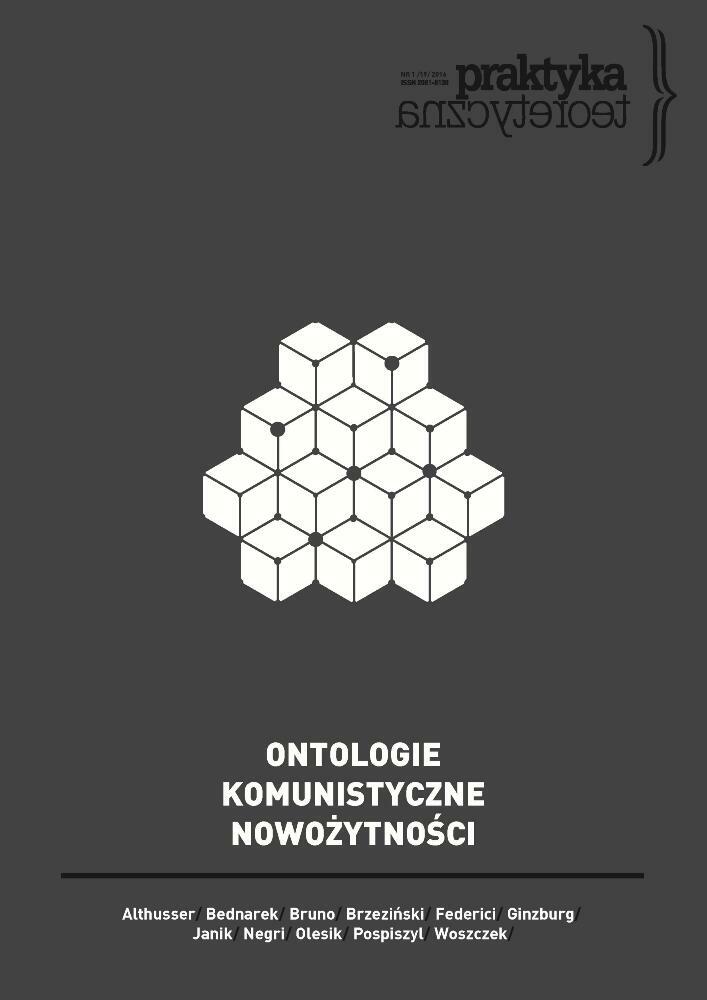Abstract
The notion of democracy as the ontological premise of the social being is one of the main themes in the contemporary reception of Spinoza’s political philosophy. The article presented below is an attempt to explain the ontological dimension of democracy in Spinoza’s thought. The Spinozist approach towards democracy is confronted here with Hobbes’ view on democracy – by this juxtaposition I want to show how the question of the democratic foundation has constituted one of the most important discrepancies of modern political discourse.References
Badiou, Alain. 2010. Byt i zdarzenie. Tłum. Paweł Pieniążek. Kraków: Wydawnictwo Uniwersytetu Jagiellońskiego.
Balibar, Etienne. 1997. „Jus, Pactum, Lex: On Constitution of Subject in Theologico-Political Treatise.” W The New Spinoza. Minnesota: University of Minnesota Press, 170–204.
Grocjusz, Hugo. 1957. O prawie wojny i pokoju. Tłum. Remigiusz Bierzanek. Warszawa: PWN.
Hobbes, Thomas. 1954. Lewiatan. Tłum. Czesław Znamierowski. Warszawa: PWN.
Hobbes, Thomas. 1956. O obywatelu. W Elementy Filozofii. Tłum. Czesław Znamierowski. Warszawa: PWN.
Matheron, Alexandre. 1997. „The Theoretical Function of Democracy in Spinoza and Hobbes.” W The New Spinoza, red. Warren Montag i Ted Stolze. Minnesota: University of Minnesota Press.
Montag, Warren. 1999. Bodies, Masses, Power – Spinoza and his Contemporaries. New York–London: Verso.
License
“Theoretical Practice” seeks to put into practice the idea of open access to knowledge and broadening the domain of the commons. It serves the development of science, thinking and critical reflection. The journal is published in open-access mode under the CC-BY-NC-SA 4.0 license (detail available here: http://creativecommons.org/licenses/by-nc-sa/4.0/). Articles published in the journal may be freely distributed, stored, printed and utilized for academic and teaching purposes without restrictions.
They should not be, however, used for any commercial purposes or be reconstructed into derivative creations. Access to the journal may not be limited or offered for a fee by any third party.
Prospective authors are obliged to fill in, sign and send back the publishing contract compliant with the CC licencing. [PL.pdf, PL.doc, EN.pdf,EN.doc].
According to this contract, authors grant the journal a non-exclusive right to publish their work under the creative commons license (CC-BY-NC-SA 4.0) without any financial obligation on both sides of the contract.
Before submission authors should make sure that derivative materials they use are not protected by copyright preventing their non-commercial publication. Authors are responsible for any respective copyright violations.
